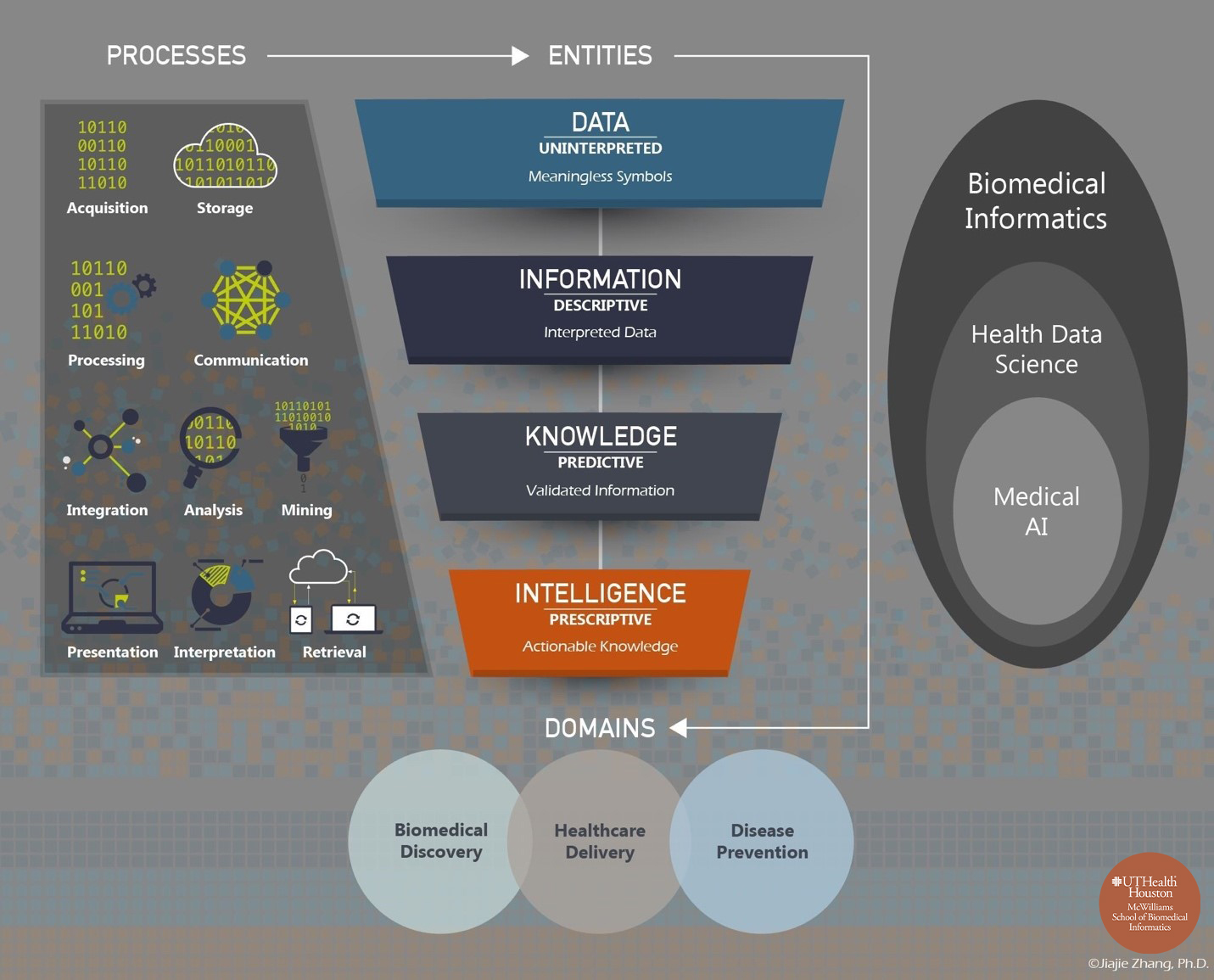Biomedical Informatics studies the acquisition, storage, communication, processing, integration, analysis, mining, retrieval, interpretation, and presentation of data and determines how to transform data (meaningless symbols) to information (interpreted data), to knowledge (validated information), and to intelligence (actionable knowledge), with the aim of solving problems in disease prevention, healthcare delivery, and biomedical discovery.
Biomedical informatics covers the entire spectrum of biological scales—from small molecules, genes, proteins, and cells, to tissues and organs, to individuals and populations. Biomedical informatics is a highly interdisciplinary field focused on collaborations with partners in clinical practice (e.g., medicine, nursing, dentistry, pharmacy, population health, etc.); the biomedical sciences; public and community health; computer science and engineering; mathematics and biostatistics; cognitive science; the social and behavioral sciences; healthcare management; and health IT policy and law. Health Data Science for medicine and healthcare is a subfield of Biomedical Informatics; it focuses on all aspects of data for disease prevention, healthcare delivery, and biomedical discovery. A subfield of Health Data Science, Medical Artificial Intelligence (AI) focuses on machine learning, pattern recognition, computational phenotyping, and predictive modeling.

Updated: 08/05/2025